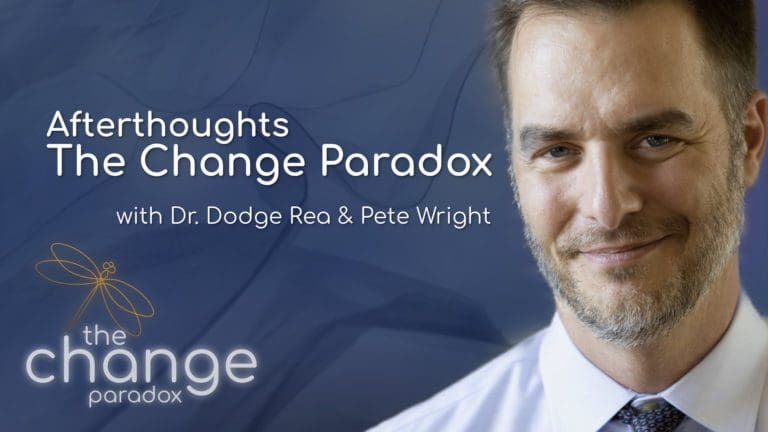
Afterthoughts • The Change Paradox
Today’s Afterthoughts gives us the opportunity to reflect not just on season two, but on the whole show, as we prepare for change ahead and mark the end of The Change Paradox.

Today’s Afterthoughts gives us the opportunity to reflect not just on season two, but on the whole show, as we prepare for change ahead and mark the end of The Change Paradox.
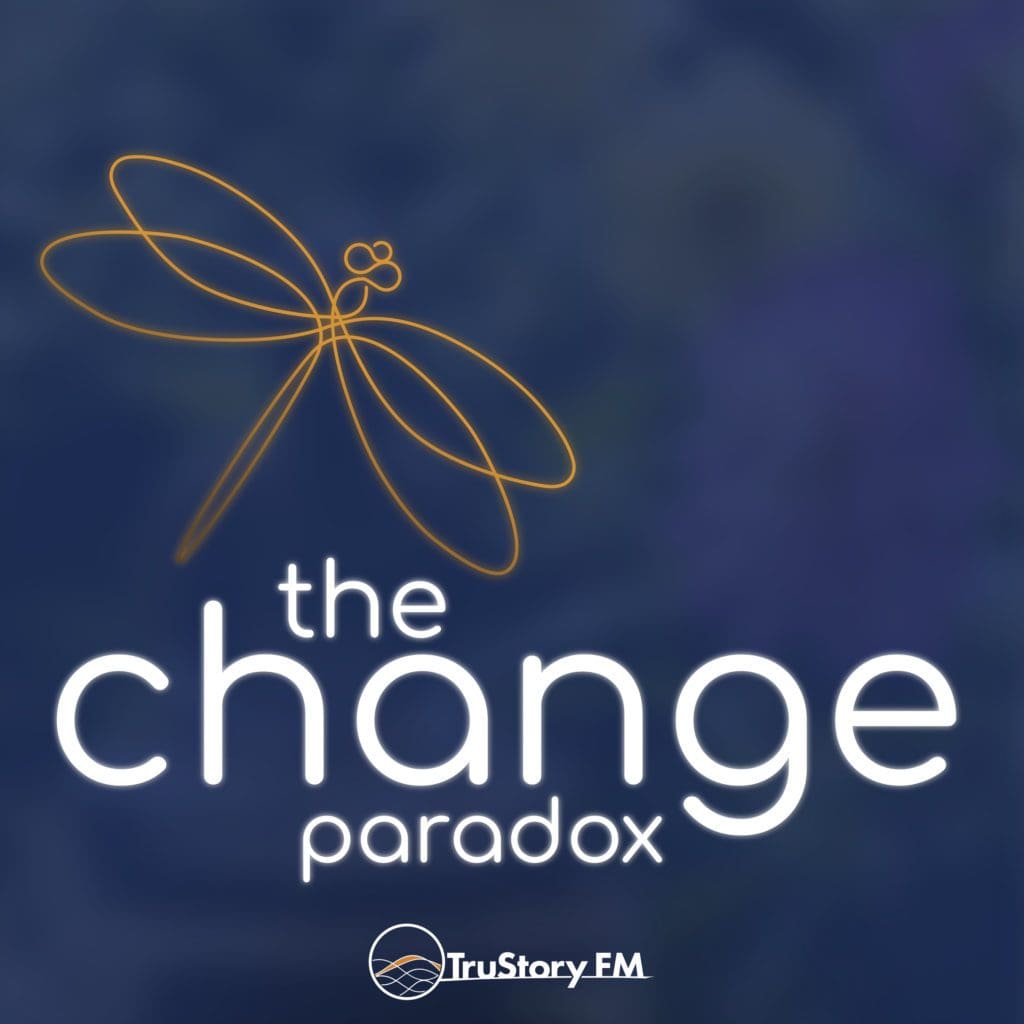
Change is a given of life, perhaps even the point of it. And now more than ever, it’s everywhere we look. But how well do we understand it? Psychologist Dr. Dodge Rea and guests explore the mysterious, paradoxical nature of successful change.
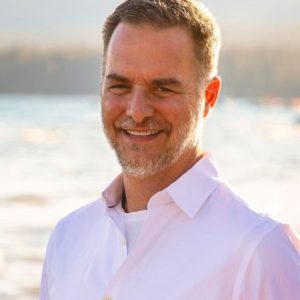
Dodge Rea, a Licensed Clinical Psychologist and certified Practitioner of Medical Qigong, approaches therapy with the philosophy that therapists should nurture growth like gardeners, rather than fix problems like mechanics. He emphasizes the innate healing capacity within his clients, offering a sanctuary free from judgment, and employs various techniques, including his own innovations such as the g.r.a.c.e. sequence and Inter-Subjective Somatic Attunement (ISSA). With a background that includes a PsyD from Nova Southeastern University and a clinical internship at Vanderbilt University, Rea founded the Lotus Center in Nashville, TN, and has integrated his work with varied holistic practices. He has been influenced by numerous fields, leading to an approach he terms Integrative Clinical Psychology. Rea, who also enjoys T’ai Chi, meditation, and family life, is currently authoring a book on the g.r.a.c.e. sequence and has served on the board of the Nashville Psychotherapy Institute. His practice is a blend of psychological, somatic, and spiritual elements designed to reconnect individuals to their core self and facilitate deep transformation.

Today’s Afterthoughts gives us the opportunity to reflect not just on season two, but on the whole show, as we prepare for change ahead and mark the end of The Change Paradox.
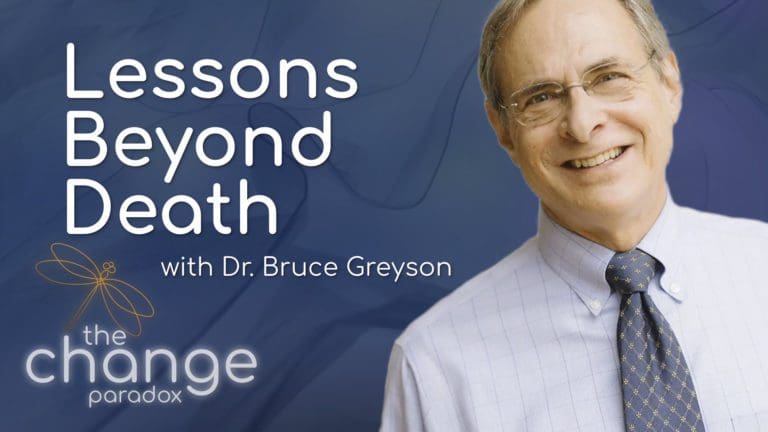
Dodge and Pete try to unpack near-death experiences in the wake of his conversation with Dr. Bruce Greyson. It leads to jealousy and a review of ‘Defending Your Life’ staring Albert Brooks, in addition to some key lessons on adapting to change in our own lives without having to pass through near-death ourselves.

Bruce Greyson, M.D., is Professor Emeritus of Psychiatry and Neurobehavioral Sciences at that University of Virginia and joins us today to share his work studying near death experiences over nearly five decades.
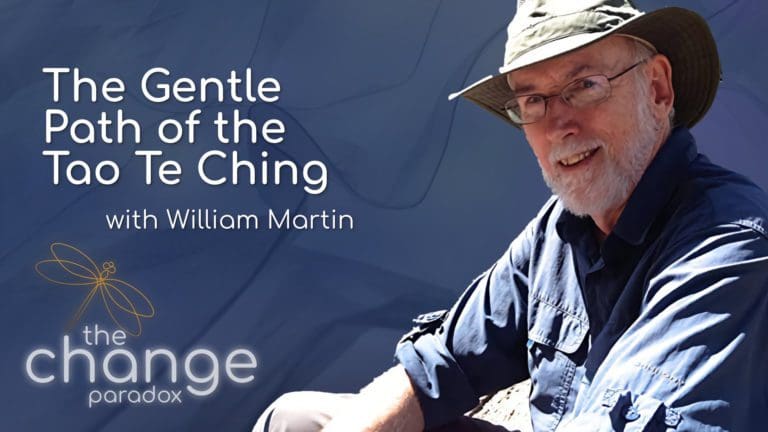
This week, Dodge and Pete are unpacking his conversation with William Martin. They try to have a simple conversation on a simple concept and fail terribly. But that’s the path of the Tao, right?